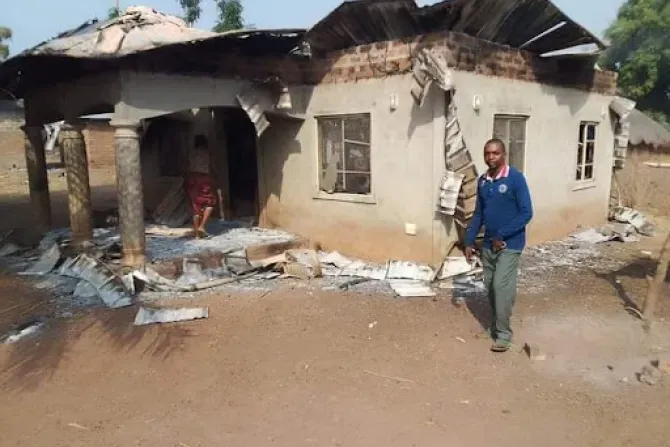“The terrorists planned this attack knowing they would get little resistance,” he said. “This attack in a remote rural area was a surprise to everyone. The attackers knew that the military would need at least one hour to get to the attack site due to the crude roads and because few of the villagers even had cellphones, and those who did wouldn’t necessarily know who to call in case of emergency.”
Father Remigius Ihyula, a priest administering aid in Makurdi, said the attack on the Tse Jor community caught the citizens and the authorities off guard.
“It was the first time the community saw such violence since the killings started in 2001, and the attackers came without warning,” Ihyula told CNA in a text message. “The motive could be nothing short of terrorism and the desire to inflict pain and disperse populations to occupy the deserted areas.”
Benue has more than 1 million people struggling to survive in makeshift camps due to terrorist raids that have depopulated large areas and prevented hundreds of thousands of small farmers from accessing their four-acre farms, Ihyula said.
 Arriving residents of the Naka internally displaced people camp build their own shelters with branches and mosquito netting on Feb. 21, 2023. Credit: Courtesy of Helen Tikyaa
Arriving residents of the Naka internally displaced people camp build their own shelters with branches and mosquito netting on Feb. 21, 2023. Credit: Courtesy of Helen Tikyaa
The attacks continued 62 miles east of Tse Jor on March 7, according to Father William Shom, who pastors a church in Yelewata, Guma County. An attack by Fulani terrorists who came in large numbers to Yelewata that evening left seven people dead. The terrorists also burned 27 houses, Shom said in a text message to CNA.
“This is what my parishioners are passing through,” Shom added. “We cannot sleep with our eyes closed. We are calling on the international community to come to our aid.”
The town of Naka, population 3,000, is host to a sprawling IDP camp of 5,000 residents, chiefly women and children suffering from hunger and trauma, according to reports from the Foundation for Justice Development and Peace.
“With the attack on Tse Jor on [March 7], there are now eight villages near Naka that have been depopulated and taken over by Muslim tribes, whose militia make up the killing parties,” Tikyaa told CNA. “Many of the children show signs of malnutrition. The state government makes ration deliveries only once each month, and when food runs out, the people in the camps try to earn money by doing jobs or begging in the streets of Naka.”
“The UNHCR [United Nations High Commissioner for Refugees], Red Cross, [and] MSF [Doctors without Borders] are very active in giving support of various kinds,” Father Ihyula said. “The UNHCR particularly has been of tremendous help, offering temporary shelters and protection-related support to the victims.”




 Arriving residents of the Naka internally displaced people camp build their own shelters with branches and mosquito netting on Feb. 21, 2023. Credit: Courtesy of Helen Tikyaa
Arriving residents of the Naka internally displaced people camp build their own shelters with branches and mosquito netting on Feb. 21, 2023. Credit: Courtesy of Helen Tikyaa
